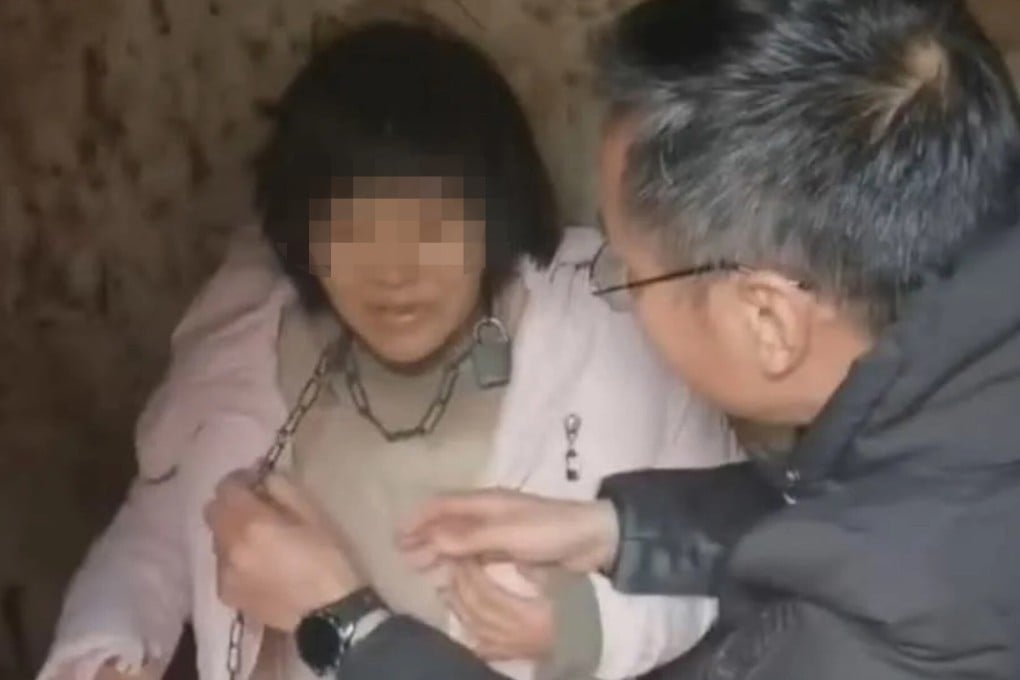Officials sacked and punished over case of ‘chained woman’ in China
- They include Communist Party chief of the county where she was found, who was removed from his post, according to government statement
- The woman, who was brought to Jiangsu by a trafficker and twice sold as a bride, is said to be receiving treatment for a mental illness and medical care

Investigators working on the case have also announced a crackdown on abuses of women’s and children’s rights, state news agency Xinhua reported.
The woman’s plight came to light in January when video footage of her with a chain around her neck went viral, and an official investigation began last week. The government statement confirmed that the woman’s real name is Xiaohuamei and that she is originally from the southwestern province of Yunnan.
It said she had been brought by a trafficker to Jiangsu in 1998 and was twice sold as a bride that year, ending up with a man surnamed Dong in Feng county, Xuzhou. Their marriage certificate was registered in 2000 and her name was changed to Yang.
She gave birth to eight children between 1999 and 2020, seven of them boys, according to the statement.